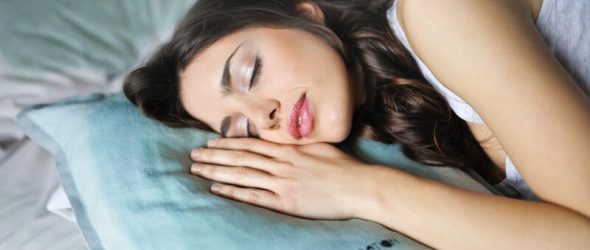The use of CBD for the treatment of various conditions has increased significantly in the last few years. Specifically, CBD has been found to have potential benefits against conditions such as insomnia. Today, we’re going to go over what CBD is and how it may impact your sleep and body.
Millions of Americans have difficulty falling and staying asleep. Many rely on over-the-counter and prescribed sleep aids, which often contain many warning markers and unwanted side effects. Moreover, they can get addictive and ineffective in the long run.
Insomnia is pretty common, and experts typically suggest lifestyle changes, sometimes in combination with prescription medications. Many people are turning to CBD as a natural alternative to solve their sleeping problems. Taking CBD for sleep appears to be safe, though research, particularly in the long term, is still very limited.
The effects of CBD on sleeplessness vary based on a person’s biological build and tolerance to certain substances. But for people looking for a potential treatment for sleep complications, CBD is a non-addictive, safe alternative to over-the-counter drugs that presents promising results for those battling insomnia.
What Research Says
Before we dive into whether CBD can promote better sleep, we first have to know what causes restlessness. Many factors can cause you to sleep poorly. Insomnia can be caused by:
- Mental health complications like anxiety, depression, and post-traumatic stress disorder (PTSD)
- Personal medication can disrupt your sleep-wake cycle
- Physical conditions like chronic pain
- Caffeine, especially when taken late in the afternoon
- External factors, such as a noisy room or an uncomfortable bed
CBD and Sleep – How to Do it?
There are many ways to take CBD for sleep. If you didn’t already know, it comes in many forms, including:
- Vape pens
- Oils
- Capsules
- CBD Edibles, like gummies
- Drinks, like tea
Generally, vaping CBD is the most efficient way to go about your sleep as it gets into your system faster than other methods. However, the research on vaping CBD is not that consistent as vaping, in general, may pose respiratory complications.
The potency of CBD you use and the time of the day you should take it will depend on a number of factors. Factors such as your weight, metabolism, and the nature of your sleeping problems will influence how the CBD works and how long it will take for the effects to kick in. Keep in mind, what may work for a friend might not work for you.
Most preliminary trials on CBD and sleep have included giving the troubled sleepers anywhere between 25 mg to 1,500 mg of CBD per day. If you’re new to CBD, it’s best to start with a moderate dosage and progressively increase it until you find something that truly works for you.
Much of the research on CBD and sleep has reported that patients will not feel an immediate difference and that it took about 30 days for the subjects to see a difference in their sleep patterns.
A 2020 review observed multiple studies on the safety of CBD and concluded that it’s a fairly safe treatment. Side effects are nearly non-existent. However, you may experience some minor side effects. Some of which include:
- Diarrhea
- Fatigue
- Shifts in appetite
- Shifts in weight
How Safe Is CBD?
Though CBD is generally considered safe, a recent study done on rodents did raise some concerns about CBD being potentially dangerous for the liver. But there is no cause for alarm. Human trials still need to be done to meet these speculations.
If you’re on other medications, CBD may also interact with them and produce some undesirable effects, so it’s best to speak to a doctor before committing.
Currently, the Food and Drug Administration (FDA) doesn’t support the effectiveness, safety, or quality of CBD products. However, to protect users, they may take action against CBD companies that make unproven health claims. That’s why we implore you to research the company’s history before you buy CBD from them. Stay away from companies with no history or reviews, and opt for CBD products that have been tested by an independent party.
While CBD can be quite helpful, it’s essential to get to the source of your sleep problems before you get into the CBD world.
When to Talk to a Doctor
Insomnia is relatively common, particularly among adults and people with other pre-existing conditions. While sleep complications can be treated with a few straightforward approaches or some simple lifestyle changes, you should see a doctor if the problem persists.
The best approach to medications depends on the type of sleeping problem, but talking to a doctor may help you solve this without having to rely on CBD at all. Bottom line: Your doctor will recommend whether you need medication, behavioral therapy, or a combination of both.
On the other hand, anyone who thinks that they may be relying too much on sleep aids should speak to a doctor. The same goes for people who experience adverse effects of sustained use of melatonin.
While doctors are doubtful whether CBD helps people sleep, the preliminary evidence suggests that it may improve sleep duration and quality.


